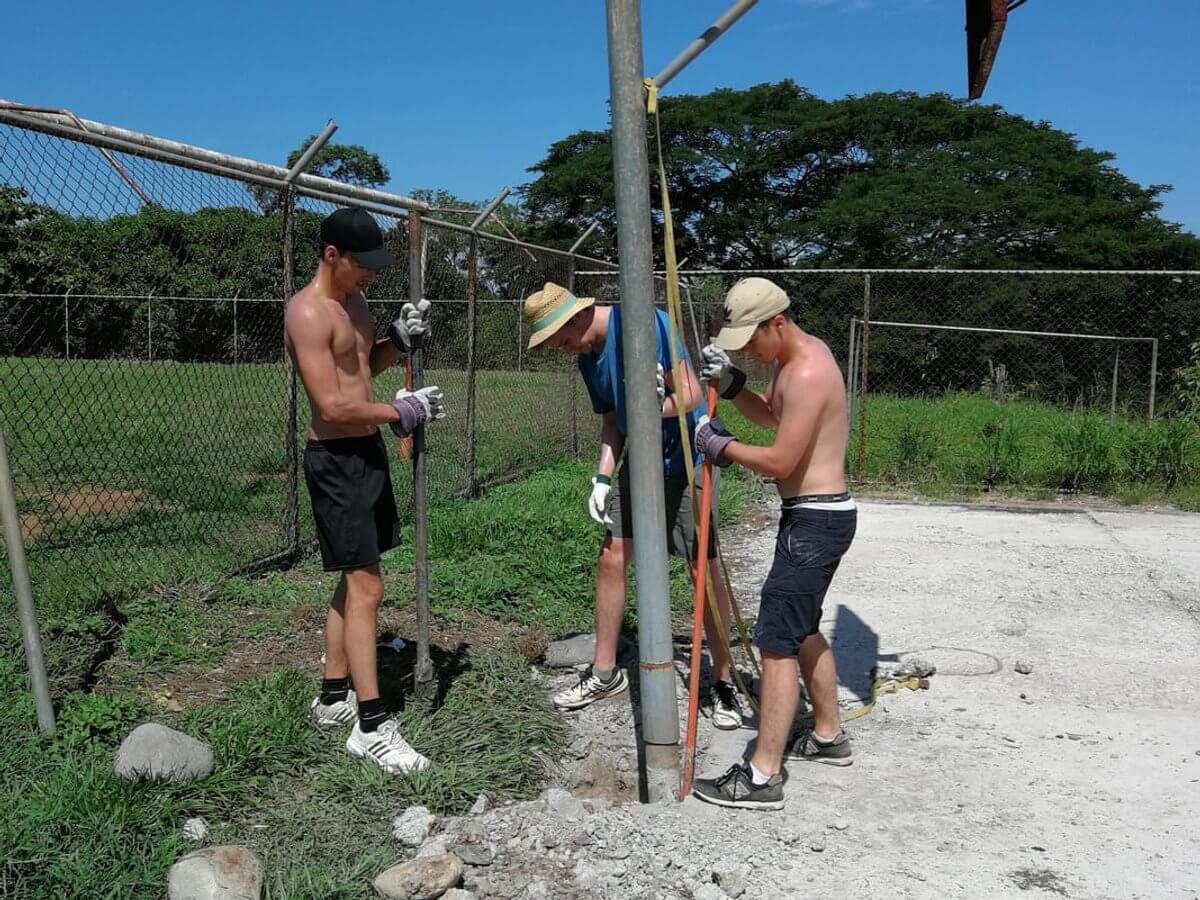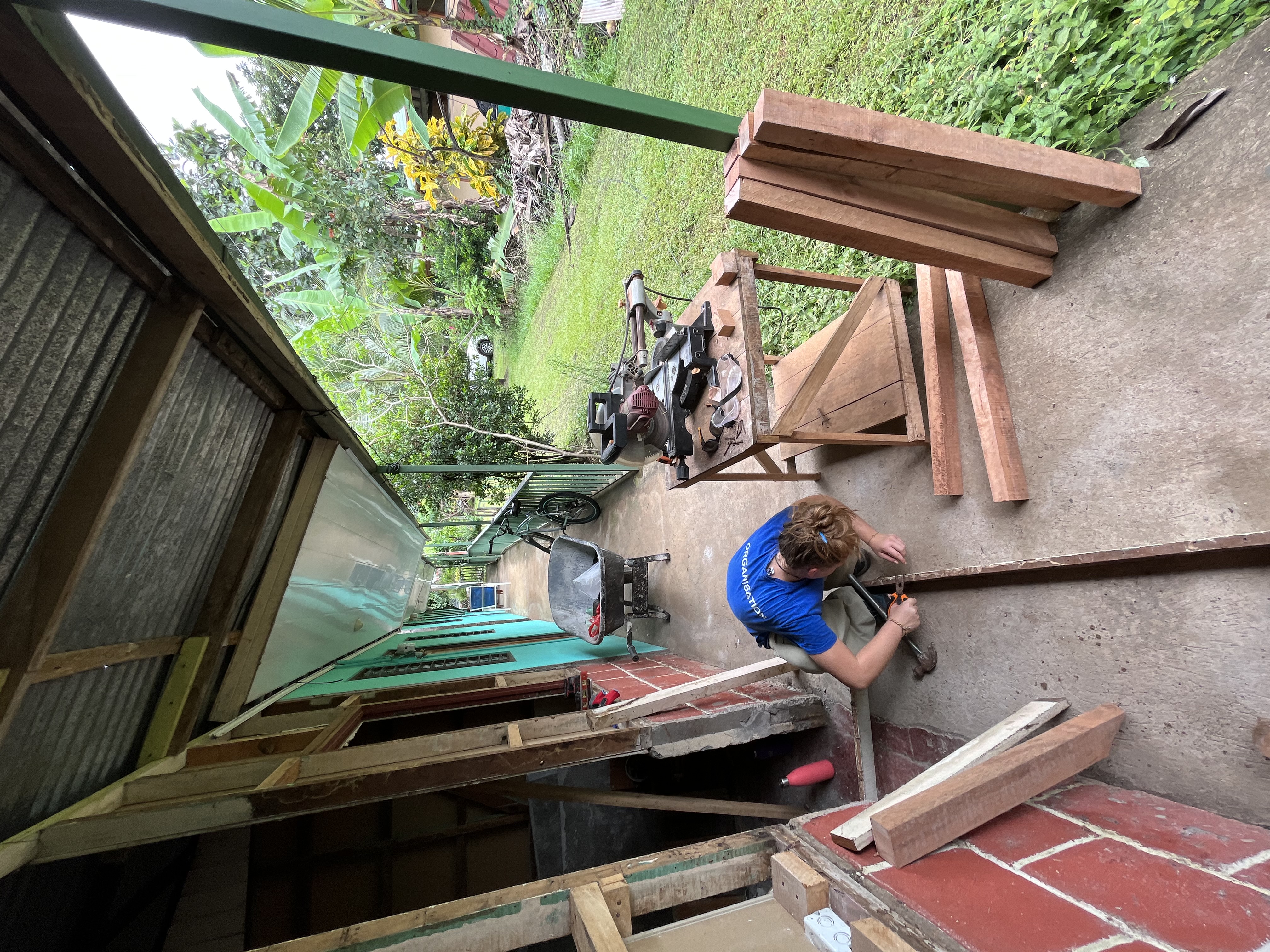Join a youth humanitarian project in the heart of Costa Rica and work alongside volunteers from around the world as part of our development project. You will live and work in Esparza, where the NGO is engaged in various construction projects based on current needs, such as building schools or community centers, painting, gardening, and agronomy. There are numerous missions available. The program emphasizes teamwork, education, and environmental awareness.
This project is specifically designed for individuals looking to participate in development missions while fully immersed in local communities. Throughout the project, volunteers will receive supervision and training from international experts selected for their experience and ability to guide and motivate teams.
The work involved in this project may include:
This youth humanitarian project is an excellent addition to your CV!
All our programs have short-, medium-, and long-term goals aligned with the United Nations Sustainable Development Goals (UN SDGs).
Volunteers should bring a pair of gloves, even for painting tasks. The NGO has a variety of old clothes and shoes available, but volunteers are required to bring at least one set of old clothes. For minors, the missions will most likely focus on painting in schools.
Airport pickup on Sunday between 10am and 9pm.
All our international construction and renovation project are open to everyone and can also host engineers and students as part of an accredited internship.
Duration during the week | Budget total mission |
|---|---|
2 weeks | 1290 € |
3 weeks | 1760 € |
4 weeks | 2230 € |
5 weeks | 2700 € |
6 weeks | 3170 € |
7 weeks | 3690 € |
8 weeks | 4160 € |
10 weeks | 5200 € |
12 weeks | 6240 € |
A 200€ supplement applies to participants under 18 years old in order to cover the specific logistics and support required for minors, More information on this link Humanitarian Trips for Youth


Your new home will be one of two newly built eco houses in our centre in Esparza: Jaguar House and Toucan House.
The two houses sleep up to 22 people. Most rooms have bunk beds and are shared on a single gender. One room in each house has a bunk bed with a double bed below, single above, suitable for couples or small families, if needed. (Private rooms can be obtained at additional cost; this must be arranged before arriving for your program).
All doors are lockable, but as rooms are shared, and we carry out regular cleaning, we recommend that you don’t lock your rooms.
There is also a large dining hall/games room/communal area shared by both houses, with free WiFi, and table tennis, and a large garden of tropical plants, including coconut palm, papaya, banana, and citrus
Food Arrangements
Three meals a day on weekdays (two on weekends) are included during your stay. The meals will mainly be a mix of traditional and modern Costa Rican food, so you may experience the Costa Rican take on foods you will be familiar with. Most meals will include either fish, chicken, pork or beef, but vegetarians can be catered for.
Mandatory Orientation Day
On the Monday of your first week at this location, you will join our orientation day, to familiarize you with the surroundings as well as local culture. Your program will continue as usual from Tuesday onward throughout the rest of the week.
Schedule
– Introduction meeting, House rules, Setting Expectations, Health and Safety Advice and handling of documents.
– Costa Rican Do’s and Don’ts, Costa Rican Culture Lessons and Spanish Language Lessons.
-Tour around the compound and local area; where to find local shops, and arrange a sim-card if necessary
– Lunch
-Introduction to the Project, Project site and start participating on the project (if possible).
– Minimum age : 16
– Level of English required: intermediate (at least B1).
– Vaccinations: Diphtheria, Typhus, Typhoid, Hepatitis A and Polio. Ask your doctor for advice on rabies vaccine and anti-malarial treatments.
To register you will be asked for
– A copy of your passport.
– A certificate of travel insurance.
– A parent authorisation for minors.
– An extract CRB
For all international projects, Realstep requires participants to take out travel insurance covering accidents, illness, and repatriation, as well as civil liability for professional activities abroad.
For complete protection while studying or interning abroad, you can take out Cap Student insurance online by following this link Student insurance abroad | Chapka Assurances, which will give you a 5% discount.
If you take out another insurance policy, we will ask you to send us a copy of your certificate in English.
Achieve the language level required for your international project with tailored support. The Clic-campus method Free Packers X Clic Campus foreign language training courses combines videoconference lessons and an innovative e-learning platform, offering complete flexibility from the comfort of your own home. Translated with DeepL.com (free version)

